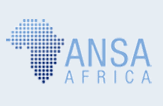For better govt services, expose graft
05 July 2010
The East African
Nairobi: Uncovering corruption can improve public service, according to a new survey conducted in developing economies. The report, released last week at the London School of Economics documents 19 independent case studies conducted by groups between 2006 to 2008, in 13 countries: Kenya, Guatemala, Paraguay, Ghana, India, Peru, Argentina, Russia, Romania, Albania, Moldova, Poland and Indonesia.
"The research forced public officials to improve education and healthcare services," a report by Results for Development Institute (R4D), a Washington-based group that promotes good governance around the world said last week.
The report, "From the Ground Up," published by the Brookings Institution Press, documents a growing phenomenon of watchdog groups in developing countries examining key issues in government performance - a role that has long been delegated to Western institutions and outside consultants.
Analysts said after the report was published, indigenous groups have the potential to do a better job than outsiders, and cost far less. "What these organisations are showing is that there are people who know the context better, know the schools, know the health system, and with a little outside help, they can go in and cause change to happen," said Courtney Tolmie, a co-author of the report and a Senior Program Officer at R4D.
Mismanagement and corruption in young democracies has been a source of great concern among donors, governments, and citizens. Surveys have shown that in many countries more than half the people have directly experienced instances of corruption - from local policemen demanding bribes to their family doctor asking for additional fees.
A Transparency International report this year found that endemic corruption in some schools in Africa was denying many children primary school education.
More details:
From the Ground Up argues that the international community's efforts to improve public expenditure and budget execution decisions would be more effective if done in collaboration with local independent monitoring organizations. Stephen Kosack, Courtney Tolmie, and Charles Griffin track the work of sixteen independent monitoring organizations from across the developing world, demonstrating how these relatively small groups of local researchers produce both thoughtful analysis and workable solutions. They achieve these results because their vantage point allows them to more effectively discern problems with governance and to communicate with their fellow citizens about the ideals and methods of good governance.
The book highlights several examples of local groups making an impact, including a Guatemala organization that persuaded the government to change the school calendar so that students would not sit for months without books and supplies; a Ghana organization that identified reasons behind high teacher absenteeism on Fridays and then started work with the government to correct the problem; and a Paraguay group that documented a troubling lack of transparency among public school budgets and effectively made the case that parent organizations were the only independent group capable of being an outside monitor of the funds.
Keywords: civil service, anti-corruption, civil society, service delivery,
|

